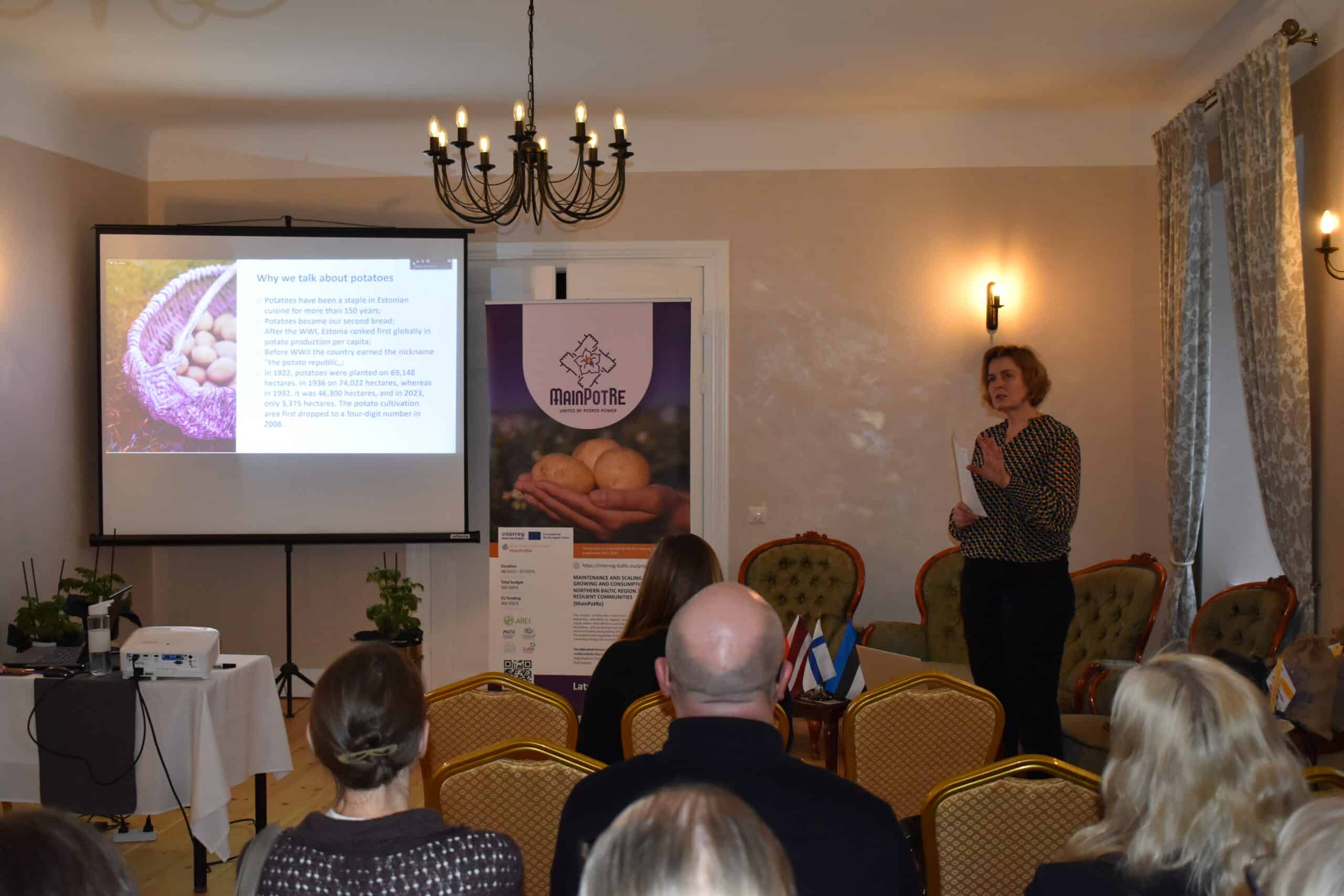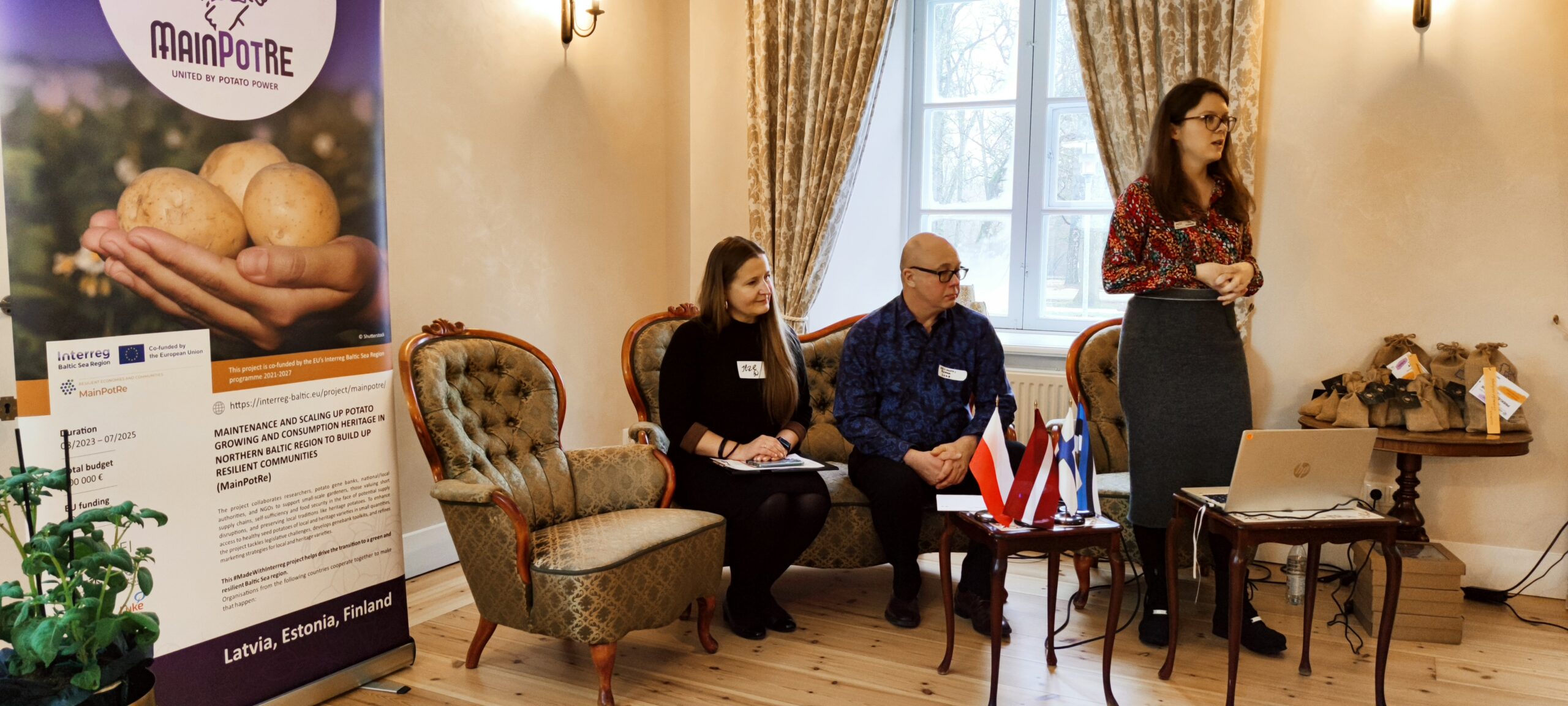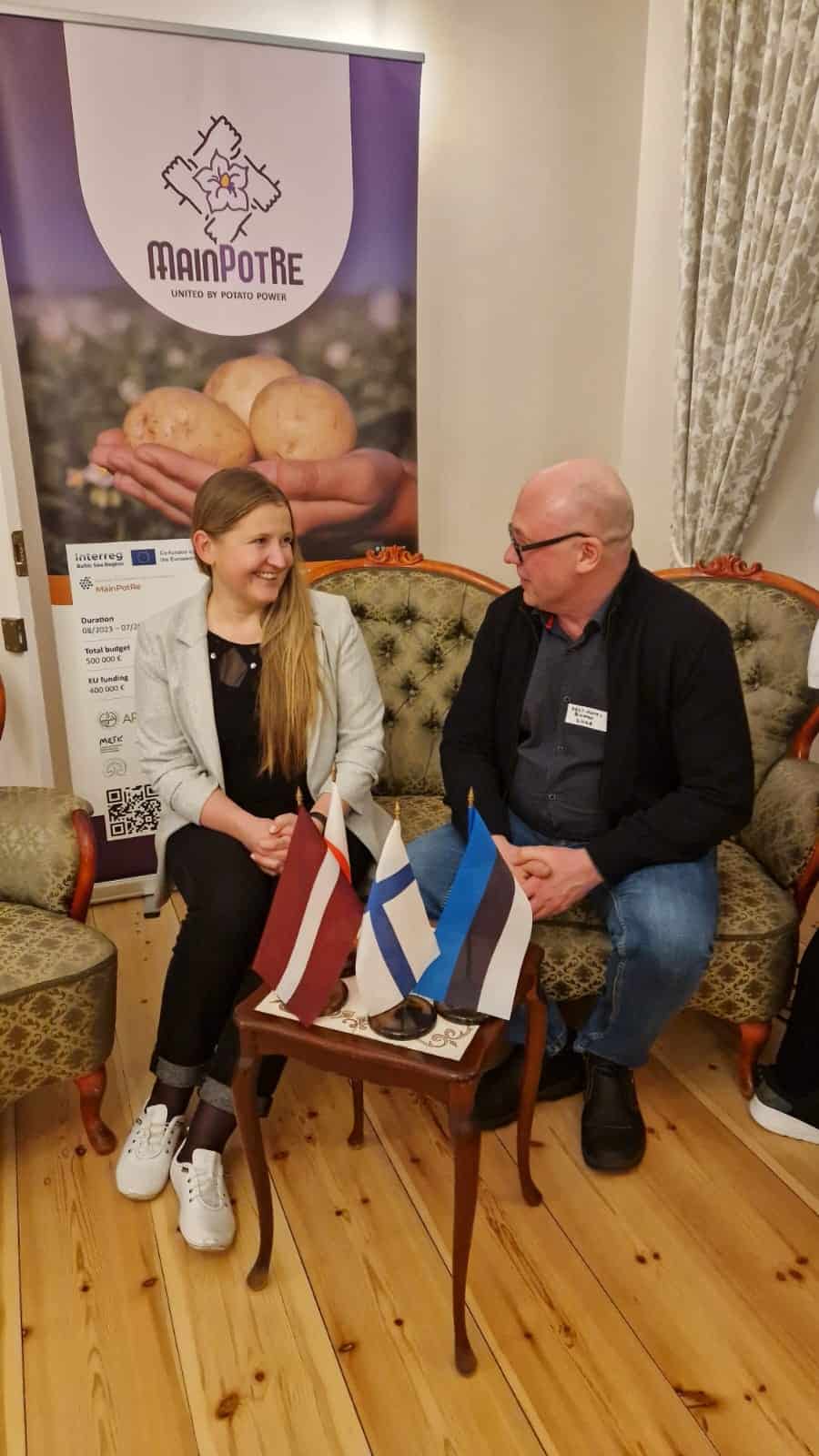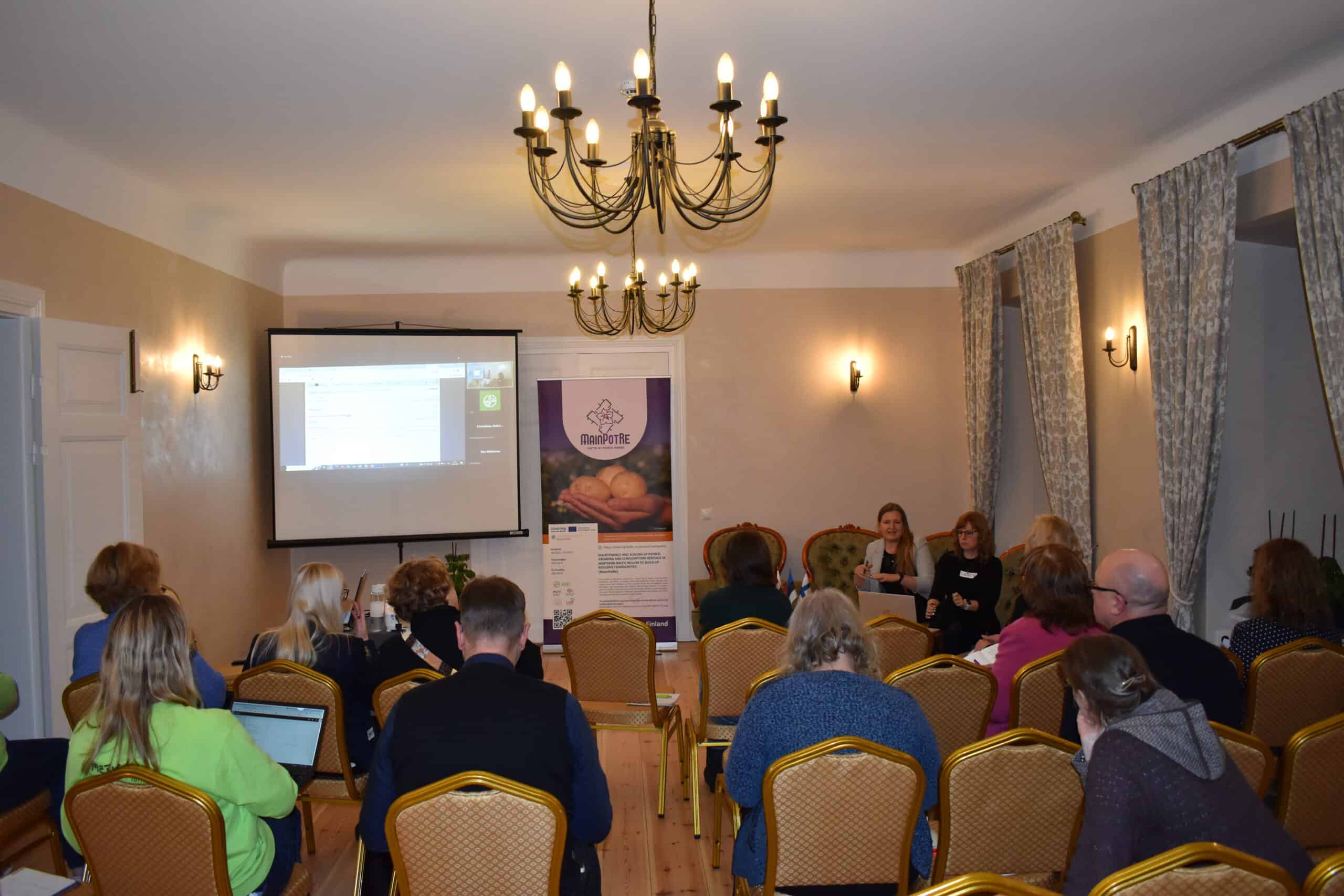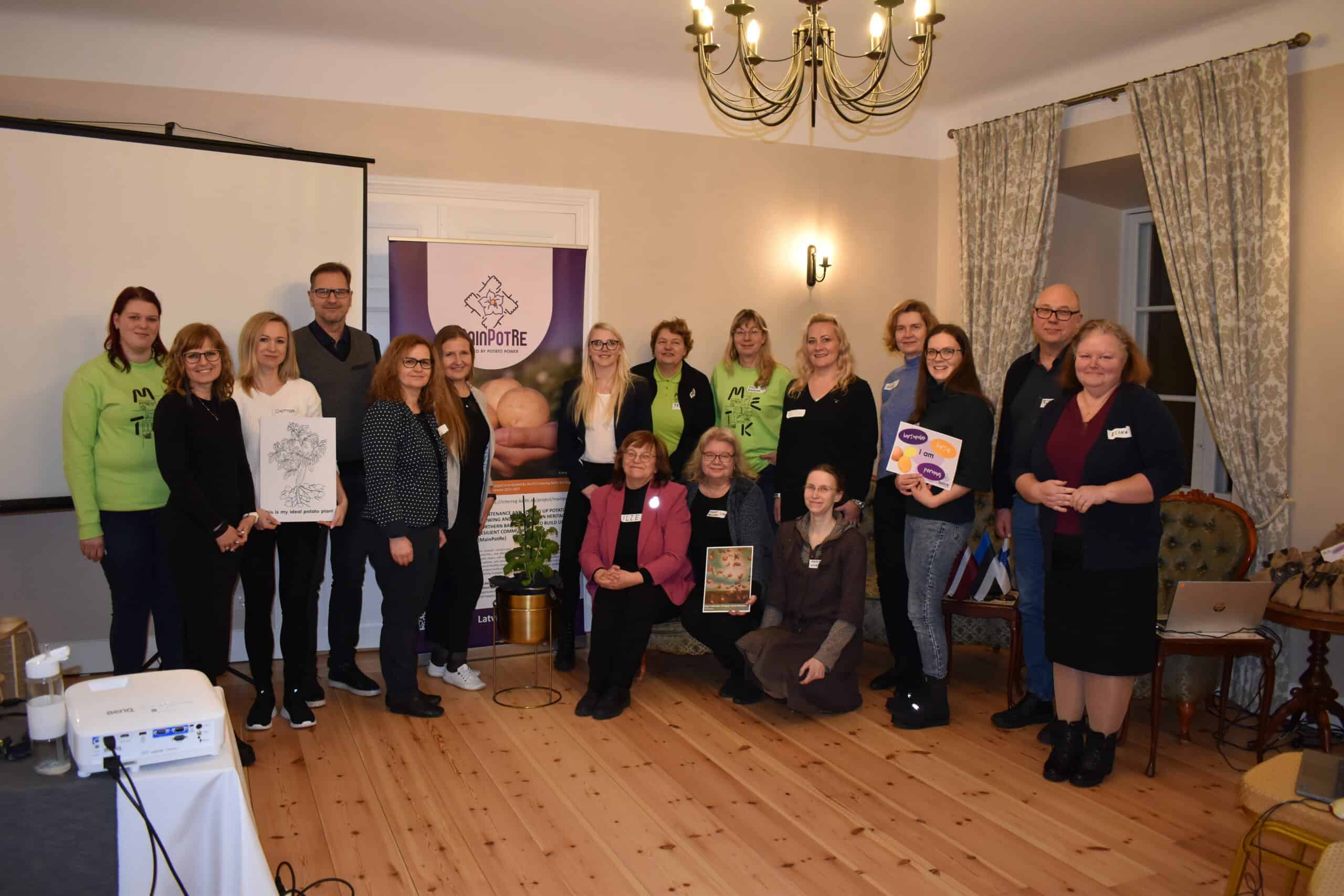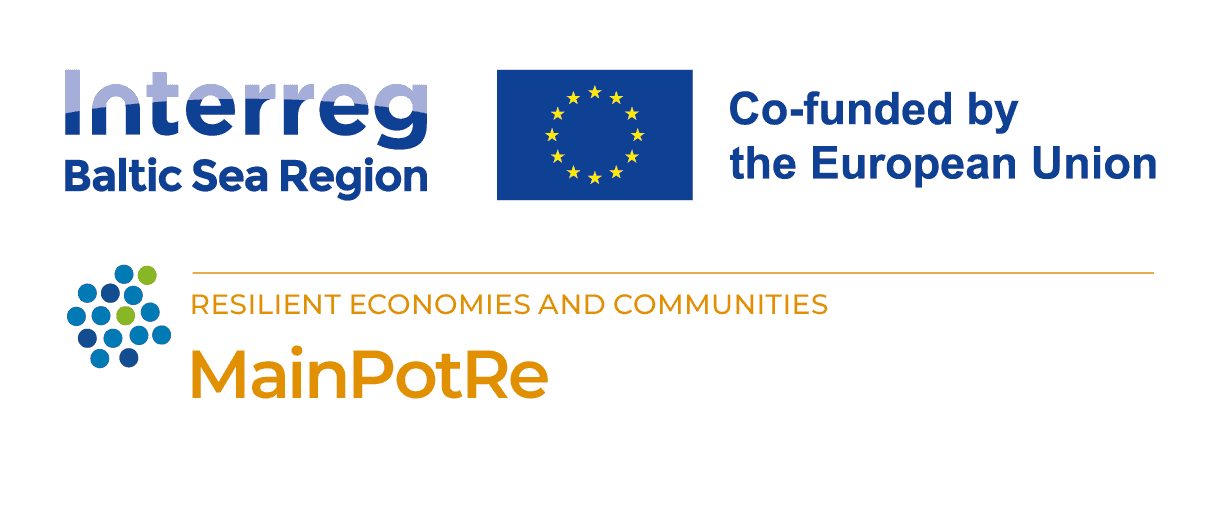
Partner meeting
05 February 2024
In the Liepa parish of the Priekuļi unit in the Cēsis district, the central topic of discussion for two days was potatoes – their place in national security and the importance and role of using local varieties in shortening supply chains, boosting local economy, research, and plant breeding, as well as in boosting resilient and self-sufficient communities.
There was much discussion about the possibilities of preserving old (heritage) varieties in gene banks, and determining their origins with modern methods. Discussions also covered the common and differing practices in each country regarding the pre-registration of conservation varieties, as well as finding common ground for proposals to improve legislation.
On the first day (January 24), project partner representatives from Latvia (AREI), Estonia (METK and the Estonian Permaculture Association), and Finland (LUKE and Finnish Food Agency), met. Representatives of associated organizations also participated in the discussions. Discussing the work done in the first six months of the project (for example, studying the global market in relation to the commercialization of seed potatoes for small growers, exploring the registration process of conservation varieties in the project countries and the associated country Poland, researching the activities of gene banks in several other countries related to the distribution of unprotected potato varieties to interested parties, etc.), partners agreed on next steps and identified several new obstacles in existing legislation that need to be overcome to make old varieties more accessible. Of course, it is also necessary to continue following the discussion process on the proposal by the European Commission on the new Plant Reproductive Material regulation and to continue actively making suggestions to National Authorities that would make it more convenient to offer certified (i.e., healthy!) potato seed material both for conservation and modern varieties to end consumers.






